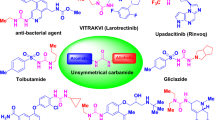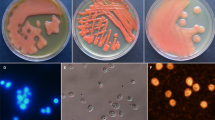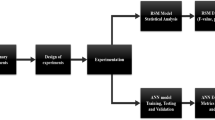Abstract
‘REFUIN’ is a high-molecular fraction of a fermentation beer produced by a thermophilic actinomycete. The fraction is recovered by precipitation with ammonium sulphate and by fractional ice crystallization. Although the fermentation temperature is 50° C, the active principle is heat-labile, losing all activity after 6 h at room temperature. Electrophoretic analysis reveals a ninhydrin staining positively charged band.
This is a preview of subscription content, access via your institution
Access options
Subscribe to this journal
Receive 51 print issues and online access
$199.00 per year
only $3.90 per issue
Buy this article
- Purchase on SpringerLink
- Instant access to the full article PDF.
USD 39.95
Prices may be subject to local taxes which are calculated during checkout
Similar content being viewed by others
References
Tendler, M. D., Bull. Torrey Bot. Club, 86, 17 (1959). Tendler, M. D., and Burkholder, P. R., App. Microbiol., 9, 394 (1961).
Moore, George E., Symp. and Panel Disc., N.Y. State J. Med., 62, 2124 (1962).
Author information
Authors and Affiliations
Rights and permissions
About this article
Cite this article
TENDLER, M., KORMAN, S. ‘Refuin’ : a Non-cytotoxic Carcinostatic Compound proliferated by a Thermophilic Actinomycete. Nature 199, 501 (1963). https://doi.org/10.1038/199501a0
Issue date:
DOI: https://doi.org/10.1038/199501a0
This article is cited by
-
Combining Biology and Chemistry for a New Take on Chemotherapy: Antibody-Drug Conjugates in Hematologic Malignancies
Current Hematologic Malignancy Reports (2018)
-
Some insights into the possible development of a biosynthetic pathway and biological function for anthramycin inStreptomyces refuineus
Folia Microbiologica (1983)
-
Proposed structure of the anthramycin–DNA adduct
Nature (1979)



